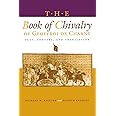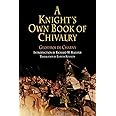
Amazon Prime Free Trial
FREE Delivery is available to Prime members. To join, select "Try Amazon Prime and start saving today with FREE Delivery" below the Add to Cart button and confirm your Prime free trial.
Amazon Prime members enjoy:- Cardmembers earn 5% Back at Amazon.com with a Prime Credit Card.
- Unlimited FREE Prime delivery
- Streaming of thousands of movies and TV shows with limited ads on Prime Video.
- A Kindle book to borrow for free each month - with no due dates
- Listen to over 2 million songs and hundreds of playlists
Important: Your credit card will NOT be charged when you start your free trial or if you cancel during the trial period. If you're happy with Amazon Prime, do nothing. At the end of the free trial, your membership will automatically upgrade to a monthly membership.
Buy new:
$28.95$28.95
Ships from: Amazon.com Sold by: Amazon.com
Save with Used - Very Good
$22.00$22.00
$4.87 delivery January 29 - 30
Ships from: book-garden Sold by: book-garden

Download the free Kindle app and start reading Kindle books instantly on your smartphone, tablet, or computer - no Kindle device required.
Read instantly on your browser with Kindle for Web.
Using your mobile phone camera - scan the code below and download the Kindle app.

Follow the author
OK
The Book of Chivalry of Geoffroi de Charny: Text, Context, and Translation (The Middle Ages Series) Paperback – November 1, 1996
Purchase options and add-ons
The Book of Chivalry is the most pragmatic of all surviving chivalric manuals. Written at the height of the Hundred Years War, it includes the essential commonplaces of knighthood in the mid-fourteenth century and gives a close-up view of what one knight in particular absorbed of the medieval world of ideas around him, what he rejected or ignored, and what he added from his experience in camp, court, and campaign.
Geoffroi de Charny was one of the quintessential figures of his age, with honors and praise bestowed upon him from both sides of the English Channel. He prepared the Book of Chivalry as a guide for members of the Company of the Star, a new but short-lived order of knights created by Jean II of France in 1352 to rival the English Order of the Garter.
Elspeth Kennedy here edits the original French text of Charny and provides a facing-page translation for the modern reader. Richard. W. Kaeuper's historical study places both man and his work in full context. In the formal themes that give Charny's book structure, and in his many tangential comments and asides, this work proves a rich source for investigating questions about the political, military, religious, and social history of the later Middle Ages. With this translation, the prowess and piety of knights, their capacity to express themselves, their common assumptions, their views on masculine virtue, women, and love once more come vividly to life.
- Print length248 pages
- LanguageEnglish
- PublisherUniversity of Pennsylvania Press
- Publication dateNovember 1, 1996
- Dimensions6.25 x 0.75 x 9.25 inches
- ISBN-100812215796
- ISBN-13978-0812215793
- Lexile measure1770L
Book recommendations, author interviews, editors' picks, and more. Read it now.
Frequently bought together

Customers who viewed this item also viewed
Editorial Reviews
Review
About the Author
Product details
- Publisher : University of Pennsylvania Press; Edition Unstated (November 1, 1996)
- Language : English
- Paperback : 248 pages
- ISBN-10 : 0812215796
- ISBN-13 : 978-0812215793
- Lexile measure : 1770L
- Item Weight : 14.4 ounces
- Dimensions : 6.25 x 0.75 x 9.25 inches
- Best Sellers Rank: #1,086,819 in Books (See Top 100 in Books)
- #15,992 in European History (Books)
- Customer Reviews:
About the author

Discover more of the author’s books, see similar authors, read book recommendations and more.
Customer reviews
- 5 star4 star3 star2 star1 star5 star87%13%0%0%0%87%
- 5 star4 star3 star2 star1 star4 star87%13%0%0%0%13%
- 5 star4 star3 star2 star1 star3 star87%13%0%0%0%0%
- 5 star4 star3 star2 star1 star2 star87%13%0%0%0%0%
- 5 star4 star3 star2 star1 star1 star87%13%0%0%0%0%
Customer Reviews, including Product Star Ratings help customers to learn more about the product and decide whether it is the right product for them.
To calculate the overall star rating and percentage breakdown by star, we don’t use a simple average. Instead, our system considers things like how recent a review is and if the reviewer bought the item on Amazon. It also analyzed reviews to verify trustworthiness.
Learn more how customers reviews work on AmazonTop reviews from the United States
There was a problem filtering reviews right now. Please try again later.
- Reviewed in the United States on August 6, 2015Most books on Chivalry either ridicule it, mythologize it, or sentimentalize it. This book does none of these. It was written by a famous French knight who lived it and died it.
The long introduction by the editors/translators provides a brief biography of the author, some historical perspective, and convincing speculation on the motivations of its author. "The Book of Chivalry" is de Charny's attempt to improve the quantity and quality of the French warrior classes in a time of crisis. As a member of the knightly elite, as an "insider", he had to play a double game; reform the system without criticizing it too harshly. De Charny's ethic is inclusive of poorer warriors, warriors with shady reputations, but is particularly critical of the spendthrift wealthier knights who spent more money and time on jewelry, lodging, gambling, leisure, and fashion rather than on weapons, training, and religious faith. There is almost nothing on stereotypical chivalry concerning the treatment of women.
Ultimately, this attempt at reforming chivalry was a failure. After the bulk of the French army fled, de Charny was killed in battle at Poitiers while holding the Oriflamme. Chivalry and the "Preudhomme" entered myth.
The book reveals other interesting aspects of the medieval French warrior mindset. Although immersed in it all his life, De Charny completely ignores the technology and politics of war. He attaches little importance to the achievement of anything other than a good personal reputation as a "preudhomme", or "Man of Worth". He is completely immune from the modern obsessions with justice, victory, security, or wealth. His sense of the ideal warrior would be a deeply pious man who singlemindedly studies and practices the profession of arms from the earliest age, sticks with it through the best and worst times, and gives little time or thought to anything else other than God. But the ideal is not a standard.
- Reviewed in the United States on September 11, 2012The term chivalry has been perverted to mean a lot of things over the years, mostly to mean a man who puts up with the bad behavior of women. This book sets the record right; chivalry is a code of conduct for fighting men of God. Nothing more, nothing less
- Reviewed in the United States on March 3, 2020Superbly wonderful
- Reviewed in the United States on July 27, 2017The book on chivalry, for those of us who practice it. Thanks, Prof. Kaeuper.
- Reviewed in the United States on February 10, 2010It was a privilege to read the writings of this 14th Century Knight and Champion of Chivalric Values. I highly recommend it to anyone who seeks to study the Ideals of Chivalry as well as to anyone seeking to live by its Standards.
I am at your service,
Sir Blackwolf
- Reviewed in the United States on September 12, 2009This book is a quintessential must-read for those interested in knights, chivalry, and the culture of the Middle Ages. The translators provide an excellent introduction illuminating the life of Geoffroi de Charny. As one of the premier knights of France during the Hundred Years' War, Charny was in a good position to know the ins-and-outs of knighthood. He was captured by the English during his unsuccessful attempt to retake the city of Calais; his captors ferried him across the English Channel and held him for ransom for over a year. This period of imprisonment gave him ample exposure to the English brand of chivalry, and some think that it was during this time that he composed the Book of Chivalry. When Charny was ransomed, he returned to France to fight in one of the greatest set pieces of the Middle Ages, the Battle of Poitiers. He had the distinguished honor of carrying the Oriflamme, the royal standard of France. Sadly, the battle went against the French, and Charny perished on the field. One interesting side note to Charny's biography: he is the first recorded owner of the Shroud of Turin, a relic which many venerate as the actual shroud in which Jesus Christ's body was wrapped before his resurrection.
The text of the work itself appears in both the original Medieval French and in an English translation. The translators have done a superb job of keeping the feel of Charny's long, polished prose and making it accessible to a modern audience. In the first part of the book, Charny deals with what kinds of knights there are, comparing and contrasting the lower men-at-arms with those of higher quality. In the middle part of the book, he states what duties are most honorable for a knight to undertake and identifies the greatest knight who ever lived as Judas Maccabee. In the concluding sections, Charny shows that knights can serve God just as well as men of the cloth can, claiming that the practice of knighthood, "which can well be performed according to God's will, is very dangerous and perilous, and its practice makes greater physical and spiritual demands than those required of any of the men who are ordained to serve Our Lord in the Holy Church." This last section is especially interesting. In a world where the clergy saw their own calling as a better path to God, Charny speaks out and says that God can be served through every calling, even and especially in the pursuit of arms.
--Review by Rosanne Lortz, author of "I Serve: A Novel of the Black Prince"
- Reviewed in the United States on June 9, 2000A very good dual-text copy of the writings of Geoffroi De Charny (the Knight that kept the oriflamme, a symbol of France, and the first famous possessor of the Shroud of Turin) into what Chivalry is, and what Knighthood should be, and the differences between that and what it really seemed to be.
The prose is well done, giving good insight into the mind of the Knight of that era. Examples of the problems of lust versus courtly love, the appropriateness of staying just a little hungry, and a comparison of the Orders of Grace (priesthood) with the Orders of Knighthood all work together to give the reader a sense of the noble and knightly duties in the pre Republic days of Europe. This is a good starting point (along with Ramon Lull's _The Book of the Order of Chivalry_) for the novice to learn how social Chivalry developed from the military form to the current socio-political. The parallels in current day knighthood can easily be seen once an understanding is gained of the past, and this book brings the past into focus in an amazing way.
Do be advised -- the French and English are interleaved, so you'll either be reading on the right (english) or left (french) once you get past the introduction!
Top reviews from other countries
 VSReviewed in Canada on October 13, 2022
VSReviewed in Canada on October 13, 20225.0 out of 5 stars Surprise after surprise
i bought this book to get a feeling for who Geoffroi de Charny was, and got more than I expected. Little has been written about this man who is the first documented owner of the Shroud of Turin. Some things have been speculated, but the facts, i thought, wers unknown. This book tells more than I could ask for. The research on him is exceptional.
Geoffroi was, to put it in modern terms, a workaholic despite being born an aristocrat. He worked like he was not. The extensive history and resume of Geoffroi here proves that he was an amazing man, someone I would want have met and know, one with high morals, integrity, virtue. His book, I discovered here, is one of THREE books he wrote on knighthood, not to mention all the other jobs he took on. I knew he was impressive but shocked by how much he squeezed into his short life.
His one most popular book of his 3 included here was also shocking, though that may be due to the translator's editing of the original. It reads almost like modern French. Anyone who is fluent in French can read and translate the 700+ year old French. I studied the French writings of Moliere, Pascal, etc... in a university course, French writings when French ladies sat in their bed surrounded by writers and tried to improve the French language and instead complicated and butchered it in the process. So I was shocked that the French in this book was ordinary French, not "Shakespearian-like" unreadable French but almost ordinary modern French, the French without the endless stupid useless accents. I loved the French - my French. And the English translation next to it was more than excellent. If I had translated it word for word, the translation would have been boring. Her translation is much better and from what I have read so far, is accurate and adds and subtracts nothing from the original.
The history of Charny is also supplemented by a history of chivalry and compares Charny's 3 books on chivalry to other books written by others at the same time. That also was something I was surprised to find in this book.
Charnoi's book is a book about ethics, that applied to knights 700 to 900 years ago, but could apply to any profession be it soldier, lawyer, doctor, engineer, athlete.
I usually hate history, especially war stuff, but this book, from the history to the French, was a delight to read.












